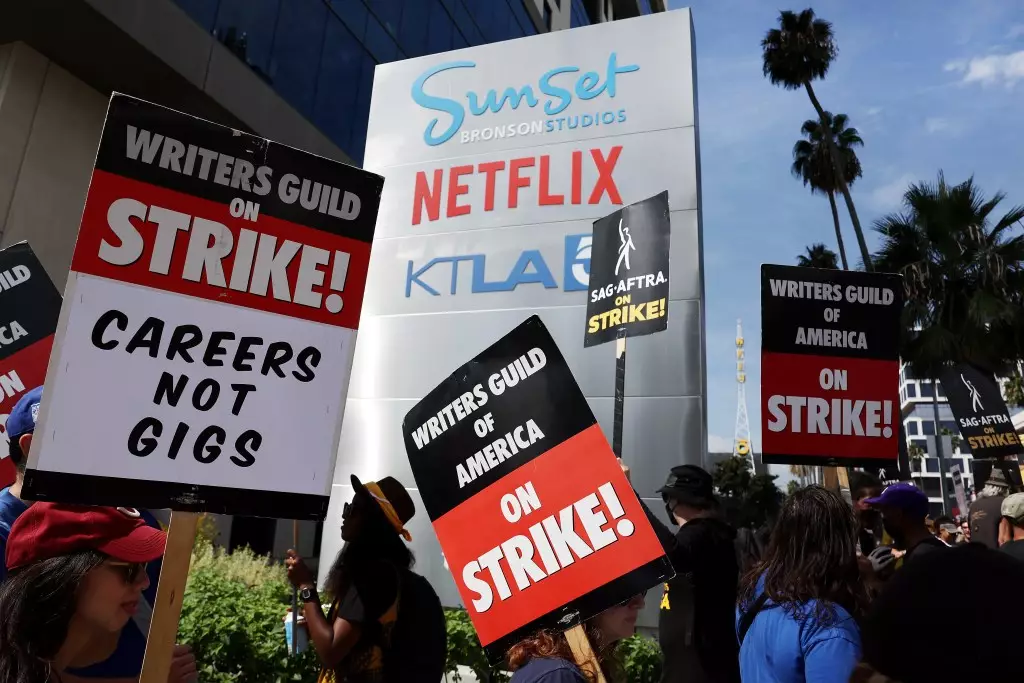In an alarming revelation, the Writers Guild of America (WGA) has reported a staggering 42% decline in television writing jobs for the 2023/24 season. This significant downturn isn’t just a statistic; it reflects the profound struggles that writers are currently facing as the industry undergoes seismic shifts. Only 1,819 positions are available this season, down from 1,319 the previous year. This drastic drop indicates a troubling trend in a creative sector that should be flourishing. The implications of these figures extend not only to the writers seeking employment but also to the audiences who crave diverse, quality storytelling.
Impact of Industry Dynamics
A myriad of factors contributes to these disconcerting statistics. Central to the issue is the prolonged battle between the WGA and major studios over fair contracts. After a grueling strike that lasted nearly five months, it is evident that these negotiations have not borne the fruit desired by the writers. The combination of reduced production budgets, alongside a surge in corporate pressure to deliver immediate financial returns, has led to fewer original programming ventures. This is particularly concerning as streaming platforms, which once promised endless opportunities for creativity, are now retreating from expansive project lists to appease stakeholders clamoring for rapid profit.
Moreover, the wave of cancellations that has swept through numerous beloved shows further exacerbates the situation. The diminishing chances for writers to bring their narratives to life only compounds the sense of urgency and hopelessness felt within the community. Positions for essential creative roles are disappearing at alarming rates; notably, showrunners and co-executive producers witnessed a drop from 1,508 positions in 2018/19 to a mere 952 last season.
A Reflection of Broader Trends
As the television landscape shifts, it is evident that this crisis of employment for writers reflects broader societal trends. The increasing prioritization of profit margins over storytelling innovation reveals a fundamental misunderstanding of what audiences value. Viewers seek connection and authenticity through rich narratives, and they deserve a thriving community of writers dedicated to bringing those stories to life. The loss of nearly 642 positions for showrunners and co-executive producers indicates that the industry may be sacrificing depth for short-term financial gain.
Moreover, the reduced number of mid-level positions highlights a stifling of mentorship and growth opportunities within the field. Writers who once relied on the mid-level roles to bolster their careers and refine their craft find themselves stymied, which could have lasting implications on the quality of television in coming years.
Future Considerations
While these statistics paint a grim picture, there remains an underlying resilience within the writing community. The solidarity displayed during the recent strike reflects a tenacity that could potentially influence industry standards for fairness and creative opportunity. Writers are not merely victims of the system; they are agents of change, capable of shaping the future of storytelling.
The landscape may be fraught with challenges, but opportunity often lies in adversity. As the dust settles from the recent upheaval, it is crucial for both writers and industry leaders to reassess their priorities, focusing on sustainable growth that champions creativity while still meeting the demands of the market. The journey may be arduous, but the voices of writers remain integral to the essence of television.

